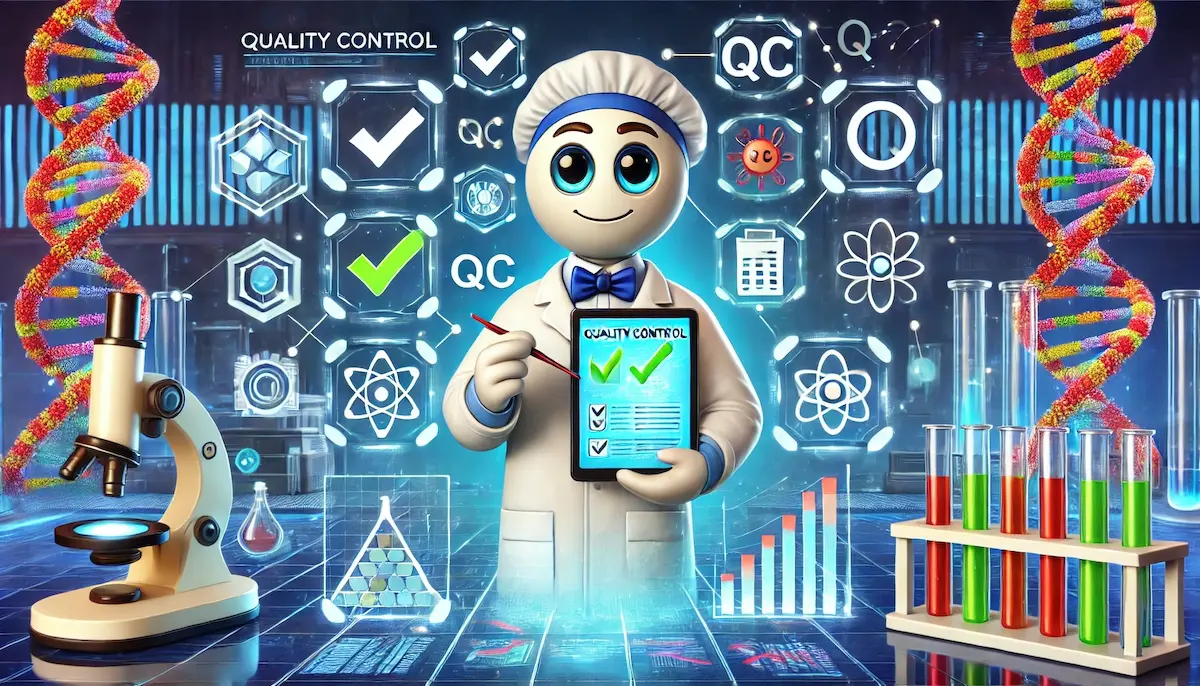In the biotechnology industry, ensuring the safety, efficacy, and consistency of products is crucial. This is where biotech quality control (QC) plays a vital role. Quality control involves a series of tests and procedures designed to ensure that biotech products meet the highest standards before they reach the market. Let’s explore what biotech quality control entails and why it is so important.
What is Biotech Quality Control?
Biotech quality control is the process of testing and verifying that biotechnology products—such as drugs, vaccines, and biologics—meet predefined quality standards. QC is an essential part of the larger quality assurance (QA) system, focusing on detecting and addressing any issues that could affect product quality during the manufacturing process.
Quality control in biotech covers everything from raw materials to final products, ensuring that each batch is safe, effective, and consistent with regulatory requirements. It involves both in-process testing and final product testing, as well as environmental monitoring to maintain the integrity of the production environment.
Key Components of Biotech Quality Control
Biotech quality control encompasses several critical components:
In-Process Testing
In-process testing refers to the monitoring and testing of products at various stages of the manufacturing process. This ensures that each step meets quality standards before moving on to the next. In-process testing can include checking for contamination, verifying the concentration of active ingredients, and monitoring the physical characteristics of the product.
Final Product Testing
Final product testing is conducted on the finished biotech product to ensure it meets all quality specifications before it is released to the market. This includes tests for purity, potency, sterility, and stability. Any batch that does not meet the required standards is rejected or subjected to further investigation and remediation.
Raw Material Testing
The quality of raw materials used in biotechnology production is critical to the final product’s quality. Raw material testing involves verifying the identity, purity, and potency of the materials before they are used in production. Ensuring the quality of raw materials helps prevent issues in later stages of manufacturing.
Environmental Monitoring
Maintaining a controlled and contaminant-free environment is crucial in biotech manufacturing. Environmental monitoring involves testing the air, water, surfaces, and equipment in the production facility to detect any potential contaminants. This helps ensure that the manufacturing environment does not compromise product quality.
Stability Testing
Stability testing assesses how biotech products perform over time under various environmental conditions, such as temperature and humidity. This testing is crucial for determining the shelf life of products and ensuring they remain effective and safe throughout their intended use.
Documentation and Record-Keeping
Accurate documentation and record-keeping are fundamental to quality control. Every test and procedure must be meticulously documented, providing a clear record that the product has met all quality standards. This documentation is essential for regulatory compliance and for tracing the history of each product batch.
Importance of Biotech Quality Control
Quality control is a cornerstone of the biotechnology industry, offering several key benefits:
Ensuring Product Safety and Efficacy
QC ensures that biotech products are safe for use and perform as intended. By catching any issues early in the manufacturing process, QC helps prevent unsafe or ineffective products from reaching consumers.
Regulatory Compliance
Biotech products are subject to rigorous regulatory scrutiny. Quality control ensures that products meet the standards set by regulatory bodies such as the FDA or EMA, facilitating approvals and reducing the risk of non-compliance.
Maintaining Product Consistency
Consistency is critical in biotechnology, where even small variations can have significant effects. QC ensures that every batch of product is consistent with the high standards required, providing reliable outcomes for patients and consumers.
Reducing Waste and Costs
By identifying and addressing quality issues early, QC helps reduce waste and avoid costly recalls or rework. This leads to more efficient use of resources and improves the overall profitability of biotech manufacturing.
Protecting Brand Reputation
High-quality products are essential for maintaining the trust of consumers, healthcare providers, and regulators. Effective QC helps protect a biotech company’s reputation by ensuring that only products that meet the highest standards reach the market.
Conclusion
Biotech quality control is a critical process that ensures the safety, efficacy, and consistency of biotechnology products. By implementing rigorous testing and monitoring procedures, biotech companies can meet regulatory requirements, protect patients, and maintain their competitive edge in the market.
Blockfine thanks you for reading and hopes you found this article helpful.
